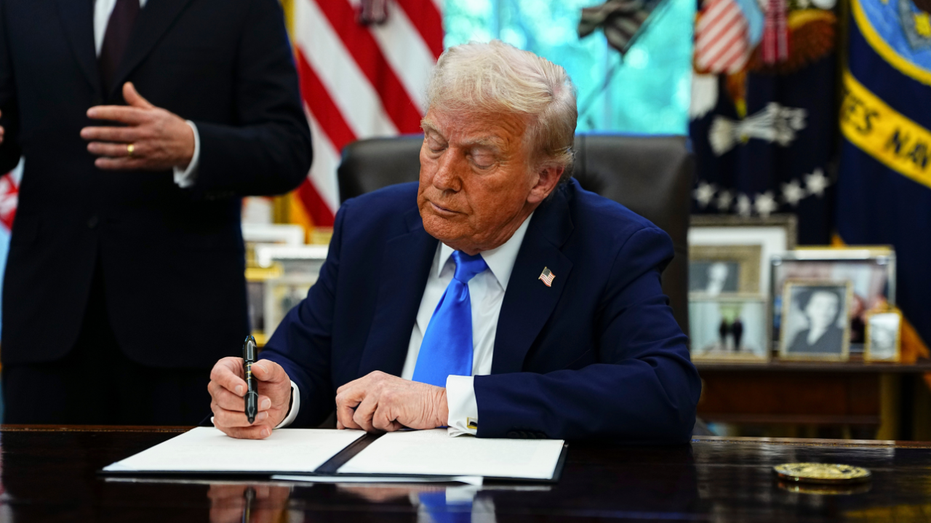**Understanding the Controversy Surrounding H-1B Visas**
Following months of controversy, President Donald Trump issued a proclamation in September decrying the systemic abuse of the H-1B visa program. He argued that the program is fueling the “large-scale replacement of American workers” and has “undermined both our economic and national security.”
To address this, Trump instituted a $100,000 fee for companies seeking to obtain an H-1B visa, a move that has been widely criticized by business leaders, especially in the tech industry. The debate over the program has split both the American public and the GOP, with one side asserting that visa holders are poaching American jobs, while the other emphasizes the program’s importance to U.S. competitiveness.
So, what exactly are H-1B visas, and why have they become such a political flashpoint?
—
### What is an H-1B Visa?
An H-1B visa is a non-immigrant work visa that allows U.S. companies to hire highly-skilled foreign workers in specialty occupations. These visas are issued for an initial period of three years and can be extended up to six years.
According to the U.S. Citizenship and Immigration Services (USCIS), the visas are meant for individuals of “exceptional merit and ability.” To qualify, candidates must have at least a bachelor’s degree in a relevant field.
—
### Which Industries Use H-1B Visas Most?
By far, the tech industry is the largest user of H-1B visas, accounting for roughly 60 to 70 percent of all new applications in recent years. Other prominent sectors include consulting and professional services, engineering and manufacturing, healthcare and medical research, and higher education.
—
### How Many Foreign Workers Hold These Visas?
There is no official figure for the number of people currently holding H-1B visas. However, there is a yearly cap of 65,000 visas, with an additional 20,000 reserved for individuals holding master’s degrees or higher.
Most universities and non-profit research organizations are exempt from this cap, which further increases the number of people approved each year. The Pew Research Center estimated that about 400,000 H-1B visa applications were approved last year under the Biden administration.
—
### Where Do Visa Holders Come From?
Nearly three out of every four — 73 percent — of H-1B visa holders come from India, according to Pew. China ranks second, with 12 percent, while the remaining 15 percent come from various other countries, none exceeding a 2 percent share.
—
### Who Is Against H-1B Visas?
Criticism of the H-1B visa program comes from both sides of the political aisle, including former President Trump and Senator Bernie Sanders (I-Vt.).
Critics contend that the program has strayed from its original purpose — attracting top global talent — and is now being exploited by employers to import cheaper foreign labor, suppress wages, and displace American workers.
In response, Senate Democratic Whip Dick Durbin (D-Ill.) and Senate Judiciary Chair Chuck Grassley (R-Iowa) reintroduced bipartisan legislation in September aimed at reforming the program, closing loopholes, protecting American workers, and preventing outsourcing of jobs.
On the state level, Florida Republican Governor Ron DeSantis issued guidelines in October to combat what he called a university loophole. He directed the Florida Board of Governors to require universities to prioritize American graduates and curb the practice of “importing foreign workers on H-1B visas instead of hiring Americans.”
—
### Who Supports H-1B Visas?
On the other side, many prominent figures argue that the program is essential for maintaining U.S. competitiveness. Elon Musk, for example, has publicly supported the H-1B program, stating, “The reason I’m in America along with so many critical people who built SpaceX, Tesla, and hundreds of other companies that made America strong is because of H1B.”
Musk also acknowledged that “the program is broken and needs major reform,” proposing to raise the minimum salary threshold and introduce yearly costs for maintaining H-1B status to make overseas hiring more expensive compared to domestic hiring.
Business leaders assert that the H-1B program is crucial for competing with countries like China, which recently launched its own talent visa program called the K-visa. The U.S. Chamber of Commerce also supports the H-1B program.
—
### Are Visa Holders Taking American Jobs?
On September 19, President Trump issued a proclamation titled “Restriction on Entry of Certain Nonimmigrant Workers,” claiming that the H-1B visa program is being “deliberately exploited to replace, rather than supplement, American workers with lower-paid, lower-skilled labor.”
He argued that this abuse artificially suppresses wages, disadvantages American workers in the labor market, and complicates efforts to attract and retain the highest-skilled subset of temporary workers — with the most significant impact in STEM (science, technology, engineering, and math) fields.
Trump stated that the large-scale replacement of American workers through systemic abuse of the program has undermined both economic and national security.
—
### New Rules and Fees
To curb abuses, Trump imposed a $100,000 fee on companies applying for H-1B visas, effective September 21, 2025, with the restriction set to expire one year later. His administration has also been directed to initiate rulemaking prioritizing high-skilled and high-paid applicants.
Additionally, the Department of Homeland Security (DHS) plans to narrow the definition of “specialty occupation,” increase worksite compliance inspections, and require employers to submit applications directly, aiming to prevent companies from contracting out H-1B workers to other firms.
—
### What’s Next?
The debate over H-1B visas is far from over. The U.S. Chamber of Commerce has filed a lawsuit against the Trump administration’s new $100,000 fee, arguing that it would make the program prohibitively expensive for many U.S. employers, particularly small and midsize businesses.
The lawsuit claims the fee is unlawful as it overrides provisions of the Immigration and Nationality Act, which require visa-related fees to be based on the government’s costs to process them.
As the political and economic battles continue, the future of the H-1B visa program remains uncertain, but its impact on the American workforce and technological innovation will continue to be a critical issue.
—
*Stay tuned for further updates on the evolving H-1B visa policy.*
https://www.foxnews.com/politics/american-workers-being-replaced-inside-h-1b-visa-controversy
